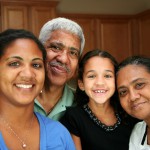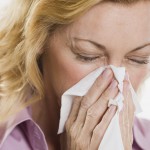
The reaction in Times Square is about what you’d expect when people walk through a giant inflatable colon for the first time: embarrassed giggles, outright laughter and, yes, fart noises! The giant colon was on display March 1 to promote the start of National Colorectal Cancer Awareness Month. Talk show host Katie Couric, who famously underwent an on-air colonoscopy when she hosted the Today show, led a tweet chat to promote colon cancer education and prevention.One in 20 people will be diagnosed with colon cancer this year, according to the Colon Cancer Alliance. Colorectal cancer is the third most common cancer in the U.S. and second deadliest, but the prognosis for colon cancer is looking up. When discovered and treated early, colon cancer is highly preventable and has a 90% survival rate.
An aggressive campaign to promote regular colon cancer screenings starting at age 50 (earlier if colon cancer runs in your family) has significantly decreased new cases of colon cancer in the U.S. and decreased the death rate by more than 30%, according to The Doctors. (Click the link to watch The Doctors discuss ways to minimize colon cancer risk.) With increased screenings, 40% of colon cancers are now found early.
Unfortunately, without regular screenings, many colon cancers are not detected until they reach an advanced stage. Lack of early symptoms and/or symptoms that mimic other common intestinal and bowel issues can delay diagnosis of colorectal cancer. Issels Integrative Oncology offers hope for late-stage colon cancer. (Click here to hear about patient remissions.)
Watch our tweets tomorrow for preventative measures that may help lower your colon cancer risk.





